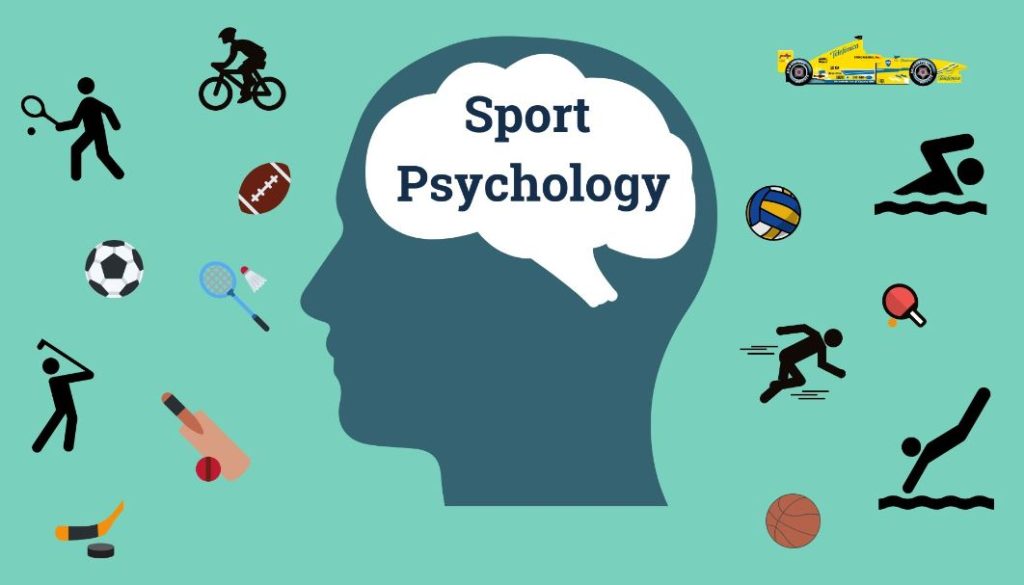Sports psychology plays a pivotal role in enhancing player performance by addressing the intricate interplay between an athlete’s mental and physical states. This field delves into the psychological aspects of sports and aims to optimize an athlete’s mindset, emotions, and behaviors to maximize their potential. By employing various techniques and interventions, sports psychologists contribute significantly to improving an athlete’s performance, resilience, and overall well-being.
One fundamental aspect of sports psychology is the cultivation of a positive mindset. Athletes often encounter immense pressure, competition, and expectations, which can affect their mental state. Sports psychologists work to instill confidence, motivation, and a resilient mindset in players. Through techniques such as positive visualization, goal setting, and cognitive restructuring, athletes learn to navigate challenges and setbacks more effectively. This mental fortitude can be a game-changer in high-stakes situations, allowing players to perform at their best when it matters most.

Another critical role of sports psychology is the management of stress and anxiety. Performance anxiety is a common challenge for athletes, affecting their ability to focus and execute skills under pressure. Sports psychologists employ relaxation techniques, breathing exercises, and mindfulness practices to help athletes manage stress and stay composed during crucial moments. By addressing anxiety, athletes can maintain peak performance levels and avoid the detrimental effects of nervousness on their game.
Enhancing concentration and focus is yet another key area where sports psychology makes significant contributions. Athletes need to maintain unwavering focus to execute complex skills and make split-second decisions during competition. Sports psychologists employ attentional control strategies, mindfulness training, and concentration exercises to improve an athlete’s ability to stay focused on the task at hand. This heightened concentration can lead to improved decision-making, reaction times, and overall performance on the field.
Furthermore, sports psychology plays a crucial role in building effective communication and teamwork among athletes. Team sports rely heavily on collaboration and coordination, and any disruptions in team dynamics can impact performance. Sports psychologists facilitate team-building activities, communication workshops, and conflict-resolution strategies to foster a positive team environment. Improved communication and teamwork contribute to a cohesive unit, enhancing the overall performance of the team.
Injury rehabilitation and prevention are additional areas where sports psychology proves invaluable. Athletes often face the challenge of recovering from injuries, both physically and mentally. Sports psychologists collaborate with medical professionals to support athletes through the rehabilitation process. They address the psychological impact of injuries, helping athletes cope with the emotional stress, fear of re-injury, and frustration associated with being sidelined. By fostering a positive mindset and resilience, sports psychologists contribute to a smoother and more successful rehabilitation process.
Setting and achieving goals is a fundamental aspect of athlete development, and sports psychology plays a central role in this process. Sports psychologists work with athletes to establish realistic and measurable goals that align with their strengths and aspirations. By breaking down long-term objectives into smaller, manageable steps, athletes can stay motivated and focused on continuous improvement. Goal-setting in sports psychology serves as a roadmap for athletes, guiding their training, performance, and overall development.

Motivation is a driving force behind athletic success, and sports psychologists specialize in understanding and enhancing an athlete’s motivation. They explore intrinsic and extrinsic motivators, helping athletes find their sources of inspiration and passion for their sport. By aligning an athlete’s goals with their motivations, sports psychologists ensure that athletes remain committed and driven to achieve their best performance.
In addition to individualized interventions, sports psychologists also contribute to the development of performance-enhancing strategies tailored to specific sports. They analyze the unique mental demands of different sports and design interventions to address these challenges. For example, a sports psychologist working with a golfer might focus on maintaining concentration during a round, managing emotions after a missed shot, and developing a pre-shot routine to enhance consistency. Tailoring interventions to the specific demands of each sport ensures that athletes receive targeted support for optimal performance.
It is essential to recognize the ongoing nature of sports psychology interventions. Athletes often engage in continuous mental training to refine their psychological skills and maintain peak performance levels. Sports psychologists provide ongoing support to athletes, adapting their interventions based on performance feedback, evolving challenges, and changes in the athlete’s career or personal life. This dynamic approach ensures that athletes receive the necessary mental tools to navigate the complexities of their sport throughout their careers.
In conclusion, the roles of sports psychology in enhancing player performance are multifaceted and impactful. From cultivating a positive mindset and managing stress to improving concentration, communication, and teamwork, sports psychologists play a crucial role in the holistic development of athletes. By addressing the intricate interplay between mental and physical aspects of sports, sports psychologists contribute to the success, resilience, and well-being of athletes across various sports and levels of competition. Their expertise not only maximizes athletic performance but also fosters a positive and supportive culture within the sports community.

